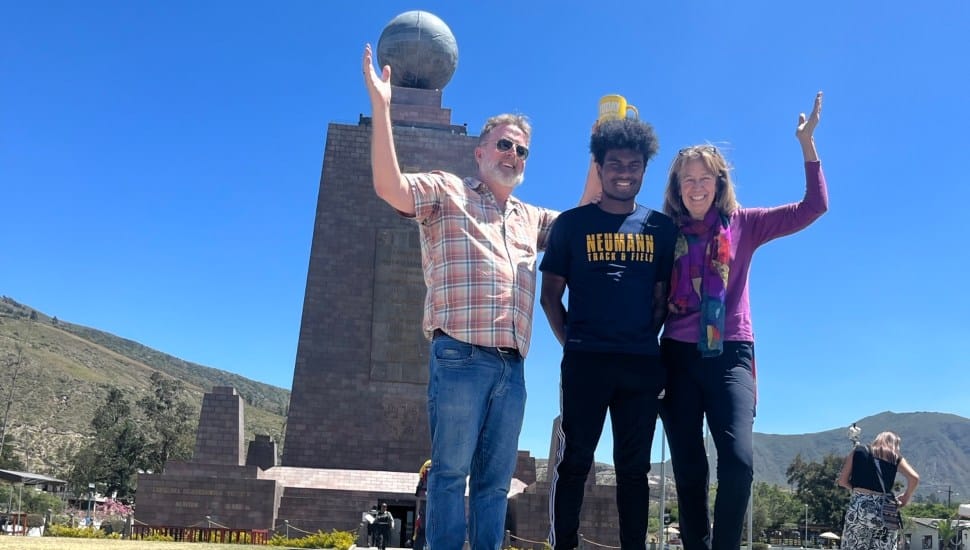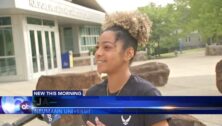Neumann University: Ecuador Trip Ignites an Orphan’s Commitment to Return

During his six weeks in a language immersion trip to Ecuador this summer, Carlos Wylde-Gladbach learned much more than Spanish. He discovered his past.
Carlos was born in Quito, the capital of Ecuador, and spent the first three years of his life in an orphanage. When Karen Gladbach and James Wylde adopted him, English became his primary language in his new home, but he never forgot his roots.
“I always wanted to go back,” Carlos confessed, but circumstances prevented a return to his homeland. First, COVID made travel risky. Then, during his first year at Neumann, the study abroad program couldn’t find a placement in Ecuador. This year, Neumann’s Center for Global Engagement found Carlos a program at the University of Cuenca.
He would stay with a host family, take a class at the university, and earn three credits in Spanish at Neumann. Carlos jumped at the opportunity and flew to Cuenca as soon as he finished final exams in May.
Ecuador is in the northwest corner of South America, situated between Colombia and Peru. It is known as the home of the Incas and the Galapagos Islands, located off the coast.
Unfortunately, his Ecuador experience got off to a rocky start. In his first few days there, he caught a stomach virus, Cuenca was hit with the aftershock of an earthquake, and the president dissolved Congress, declaring that he would remain in power for six months.
“He claimed that the Congress was not functional,” Carlos wrote in his blog. “It’s a little scary because, although it’s nothing like a dictatorship, it is alarming that the President of the country (in which I’m currently a guest!) has complete power.”
Undeterred by these early hurdles, Carlos threw himself into discovering his culture and heritage. He spoke Spanish constantly, volunteered as a soccer coach for a team of Cuenca youngsters, watched a professional futbol match between Cuenca and Delfin, and hopped on public buses just to explore the city.
He soaked up information about the Incas, the prominent culture prior to the arrival of the Spaniards. In fact, he was so enamored with Inca history that he got three tattoos: a condor, puma, and snake. The three animals are iconic to the Inca people.
“The condor (heaven), puma (the living), and snake (the dead) represent different stages of life in Inca culture,” he explained.
The tattoos include the word “forever” in Quechua, the language of his ancestors, to illustrate his cultural DNA.
His parents joined him for the last four days in Ecuador, and the family set out on a quest to find the orphanage in Quito where Carlos had spent his first three years. They drove from Cuenca through the Andean mountains to the capital city, and after several setbacks, they discovered that the orphanage had been converted into a public transit building.
The new façade didn’t impede a childhood memory, however. Carlos vividly recalled the exact spot where he and other children played with “Flintstone-style toy cars” on a Christmas morning.
A Communication and Digital Media major, Carlos wants to be a sports broadcast journalist. He has one other goal to accomplish first, however, because Ecuador has closed most of its orphanages.
“I want to join the Peace Corps,” he says. “Being adopted, I want to give back to what gave me my second chance. I want to help Ecuador start international adoptions again.”
Join Our Community
Never miss a Delaware County story!
"*" indicates required fields



















![95000-1023_ACJ_BannerAd[1]](https://delco.today/wp-content/uploads/sites/3/2023/03/95000-1023_ACJ_BannerAd1.jpg)












